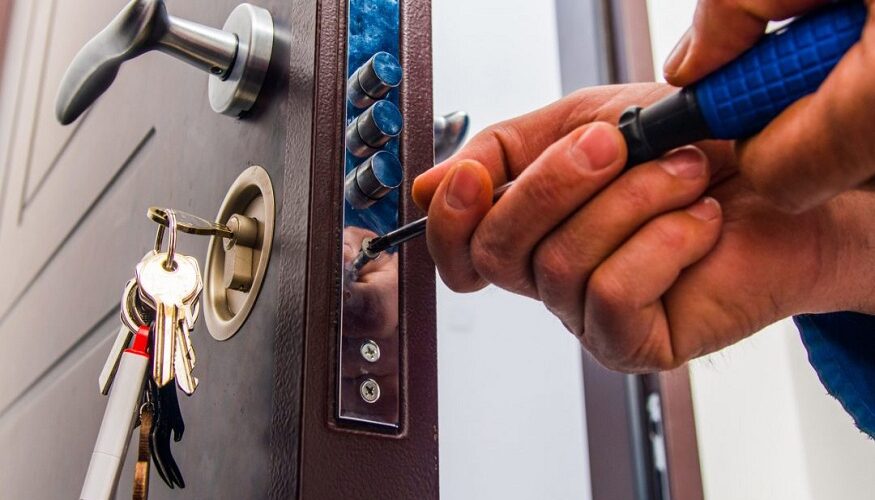General News Blog
My WordPress Blog
My WordPress Blog

A good lock does far more than keep your front door secure. For many homeowners, the type of lock fitted can directly affect whether an insurance claim would be paid out after a break-in. The idea of an ‘insurance-approved’ lock is something people often hear when moving house, renewing their home insurance or upgrading old fittings — but what does it actually mean?
In the UK, insurers often specify that certain exterior doors, especially main entry points, must have locks that meet recognised security standards. If the wrong type of lock is fitted, you might find yourself facing a rejected claim when you need help most. Knowing what makes a lock insurance-approved helps you choose the right one and protects both your property and your peace of mind.
The term ‘insurance-approved’ usually refers to locks that comply with the relevant British Standards. For external doors, the most well-known is BS3621. This standard applies to mortice deadlocks and sashlocks that are key-operated from both sides. It means the lock has been tested to withstand common forced entry techniques such as drilling, picking or brute force attacks.
A lock certified to BS3621 will display the British Standard Kitemark. This small symbol, stamped onto the faceplate of the lock, shows that it has passed independent testing and meets the level of security most insurers want to see.
There are newer standards too. BS8621 covers locks with keyless exit — useful for front doors that need to open quickly in an emergency without a key, while still offering protection against break-ins. BS10621 applies to locks that can be locked from the outside but allow free exit from inside, another option for some households.
For uPVC and composite front doors, multipoint locking systems are now the norm. These locks secure the door at multiple points along the frame when engaged. A typical multipoint lock uses a euro cylinder, so its quality is equally important.
Many insurers look for cylinders that meet the TS007 standard, ideally with a three-star rating, or cylinders marked as ‘anti-snap’. Cylinder snapping is a common method used by burglars, so a lock designed to resist this adds an extra layer of protection.
Every insurer’s policy wording is slightly different, but most home insurance providers state that your locks must meet a minimum standard. If you make a claim for theft or damage following a break-in and it turns out your locks didn’t meet the requirements set out in your policy, you could face problems when claiming for lost possessions.
It’s also worth checking that all accessible entry points — not just the front door — are covered. Back doors, patio doors, and sometimes windows at ground level should have appropriate locks that comply with your policy.
Sometimes homeowners install a new front door lock but overlook the side or back doors, which can be a weak point for opportunistic intruders.
Choosing the right lock can be confusing, especially if you’re not sure what you have fitted now. This is where a professional locksmith can make all the difference. An experienced locksmith can inspect your existing locks, advise on whether they meet current insurance standards, and recommend upgrades if needed.
They can also fit locks properly, which matters just as much as the lock’s rating. A high-security lock that’s poorly installed or doesn’t engage fully with the frame won’t offer the protection you need and might still lead to a denied claim.
There are certain times when checking your locks makes good sense. If you move into a new property, it’s wise to change the locks anyway — you never know how many spare keys may still be in circulation. This is an ideal opportunity to ensure new locks meet the correct standard.
You should also review your locks if you renovate or replace exterior doors. Some older properties still have basic night latches or mortice locks that do not carry the BS3621 Kitemark. Many insurers see these as inadequate, especially if they are the only lock securing a main entrance.
If you lose your keys, suffer an attempted break-in or experience a burglary, always have a qualified locksmith replace the locks with insurance-approved alternatives if necessary.
At its heart, an insurance-approved lock gives you confidence that your home is protected to a standard trusted by professionals and recognised by insurers. It helps deter intruders by making forced entry more difficult and time-consuming. It shows your insurer you’ve taken reasonable steps to secure your property, which can help avoid disputes in the event of a claim.
Upgrading your locks doesn’t have to be expensive. Many homeowners find that replacing older locks with models that display the correct Kitemark pays for itself in peace of mind alone. It can even lead to a slight reduction in premiums with some insurers who reward improved security measures.
A secure front door isn’t just about heavy bolts and stiff keys — it’s about fitting locks that meet a proven standard, installed by someone who knows exactly how to do it right. If you’re ever in doubt about whether your locks are up to scratch, speaking to a trusted locksmith can give you the reassurance you need.
When the unexpected happens, knowing that your locks meet your insurance requirements could make all the difference in protecting your home and the things that matter most.